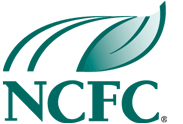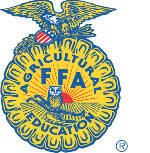Implementing legislation aimed a reforming Wall Street could have an impact on farmer cooperatives.
 As the Commodities Futures Trading Corporation (CFTC) implements provisions of the Dodd-Frank Act involving over the counter (OTC) derivatives, the Commission must ensure that farmer co-ops can continue to effectively manage risk and offer hedging tools to their farmer-owners, a representative of the National Council of Farmer Cooperatives (NCFC) said during a hearing in Washington this week.
As the Commodities Futures Trading Corporation (CFTC) implements provisions of the Dodd-Frank Act involving over the counter (OTC) derivatives, the Commission must ensure that farmer co-ops can continue to effectively manage risk and offer hedging tools to their farmer-owners, a representative of the National Council of Farmer Cooperatives (NCFC) said during a hearing in Washington this week.
The comments were made by Ed Gallagher, president of Dairy Risk Management Services, a division of Dairy Farmers of America, and vice president of risk management for Dairylea Cooperative, at a House Committee on Agriculture hearing looking at implementation of the Dodd-Frank Wall Street Reform and Consumer Protection Act.
“Due to market volatility in recent years, cooperatives are increasingly using OTC products to help them diversify their exposure by customizing their hedges,” Gallagher testified. “In addition, OTC derivatives offer cooperatives the ability to provide specialized products to farmers and ranchers to help them better manage their risk and returns. A co-op can aggregate its owner-members’ small volume hedges or forward contracts and offset that risk with a futures contract or by entering into another customized hedge via the swaps market.”
For an example, Gallagher discussed the ways in which his co-op helps their dairy farmer members hedge against increases in feed prices. Without the co-op involvement, he emphasized, individual producers would be unable to mitigate this risk effectively.
“Many producers are not able to use the futures markets to hedge input risk because of the larger volumes underlying the relevant futures contracts,” Gallagher said in his written testimony. “Furthermore, corn and soybean contracts do not trade on a monthly basis—while most of our members purchase feed on a monthly basis.”
A wide variety of farmer co-ops, including those in the grain and livestock sectors, use OTC derivatives to offer similar products.



 The
The  As the Commodities Futures Trading Corporation (CFTC) implements provisions of the Dodd-Frank Act involving over the counter (OTC) derivatives, the Commission must ensure that farmer co-ops can continue to effectively manage risk and offer hedging tools to their farmer-owners, a representative of the
As the Commodities Futures Trading Corporation (CFTC) implements provisions of the Dodd-Frank Act involving over the counter (OTC) derivatives, the Commission must ensure that farmer co-ops can continue to effectively manage risk and offer hedging tools to their farmer-owners, a representative of the  AgWired ZimmPoll sponsor,
AgWired ZimmPoll sponsor,  We always ask, “What’s new?” when conducting interviews and during the recent International Poultry Expo, our sponsor, Novus International had some news.
We always ask, “What’s new?” when conducting interviews and during the recent International Poultry Expo, our sponsor, Novus International had some news.

 The
The 

